Do Cashews Contain Vitamins? How Much Vitamins Are in Cashews?
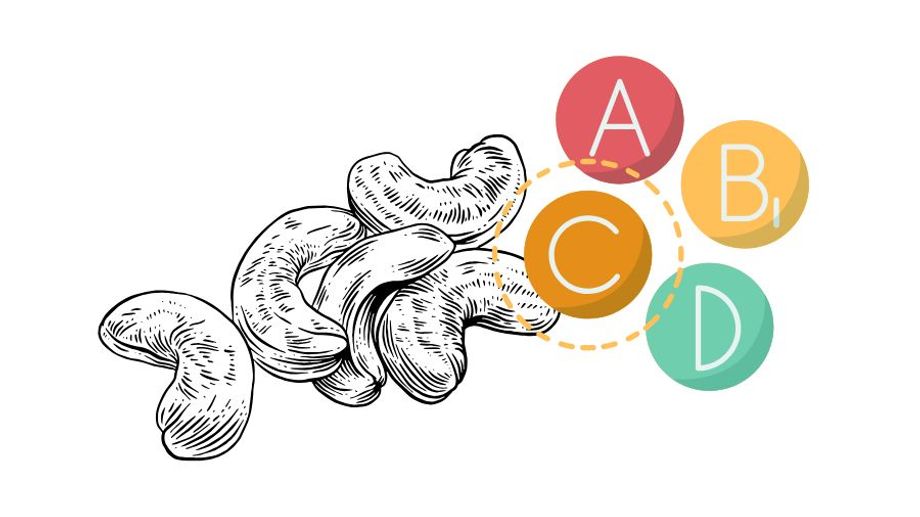
Mục lục
Cashews are a vibrant source of natural vitamins for the body. Do you know what vitamins are contained in cashews? What is the content of each vitamin? What are the effects of vitamins on human health? Let's find out through the following article to answer questions about vitamins in cashews, so that you can add cashews to your daily diet appropriately, bringing the highest efficiency.

Do Cashews Contain Vitamins? How Many Vitamins Are in Cashews
Cashews contain many vitamins and minerals that are beneficial to health. Here is some information about the nutritional composition of cashews:
- Vitamin E: Cashews contain 0.9 mg of vitamin E, an important antioxidant that helps protect cells from damage.
- Vitamin K: Cashews contain 34.1 mg of vitamin K, which participates in blood clotting and maintains bone health.
- Vitamin B6: The vitamin B6 content in cashews is 0.417 mg. It plays an important role in protein metabolism and supports the nervous system.
Minerals: Cashews provide calcium, sodium, potassium, magnesium, and folate. Magnesium plays an important role in more than 300 enzyme reactions in the body, including food metabolism and the synthesis of fatty acids and proteins.
- Vitamin E: Cashews contain 0.9 mg of vitamin E, an important antioxidant that helps protect cells from damage.
- Vitamin K: Cashews contain 34.1 mg of vitamin K, which participates in blood clotting and maintains bone health.
- Vitamin B6: The vitamin B6 content in cashews is 0.417 mg. It plays an important role in protein metabolism and supports the nervous system.
Minerals: Cashews provide calcium, sodium, potassium, magnesium, and folate. Magnesium plays an important role in more than 300 enzyme reactions in the body, including food metabolism and the synthesis of fatty acids and proteins.
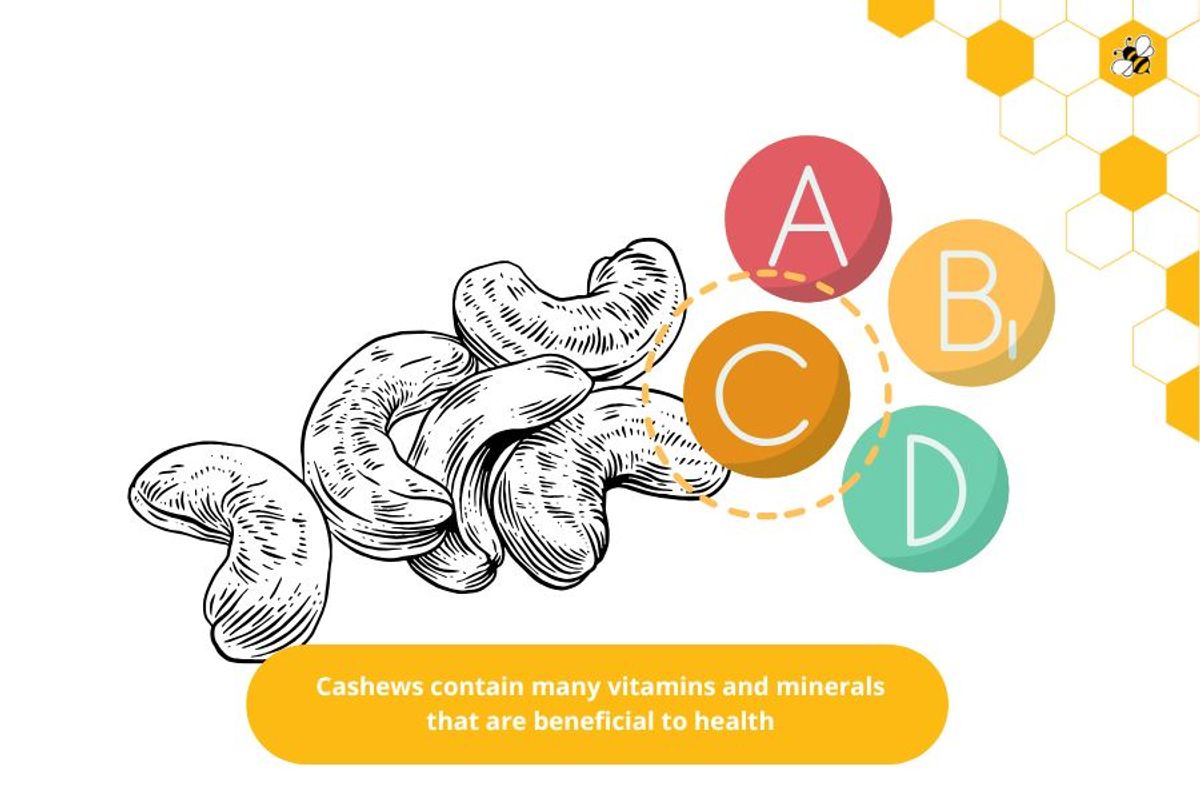
Cashews are not only delicious but also have many health benefits. They contain a number of vitamins and minerals, such as potassium, vitamin E, B6, and folate, which help control weight, support the heart, and maintain body functions. So, add cashews to your diet regularly!
What are vitamins? Vitamins in cashews
Vitamins are organic compounds that the body cannot synthesize on its own, mainly provided by the foods we use every day. Although vitamins are essential nutrients in small amounts, they play an important role in maintaining the body's metabolism.
Vitamins are divided into two main groups:
Fat-soluble vitamins: These vitamins are soluble in fat and include vitamins A, D, E, and K. They are usually stored in the body's fatty tissue.
Water-soluble vitamins: These vitamins are soluble in water and include vitamins B and C. They are quickly absorbed and digested by the body.
Vitamins play an important role in many biological functions, including regulating cell and tissue growth, providing hormone-like functions, supporting metabolism, and providing antioxidant protection.
In cashews, we can find many important vitamins. Some information about the nutritional composition of cashews:
Vitamin E: Cashews contain vitamin E, an important antioxidant that helps protect cells from free radical damage.
Vitamin K: Vitamin K in cashews supports blood clotting and maintains bone health.
Vitamin B6: Plays an important role in protein metabolism and supports the nervous system.
Folate (Vitamin B9): Supports cell and DNA development.
Vitamins are divided into two main groups:
Fat-soluble vitamins: These vitamins are soluble in fat and include vitamins A, D, E, and K. They are usually stored in the body's fatty tissue.
Water-soluble vitamins: These vitamins are soluble in water and include vitamins B and C. They are quickly absorbed and digested by the body.
Vitamins play an important role in many biological functions, including regulating cell and tissue growth, providing hormone-like functions, supporting metabolism, and providing antioxidant protection.
In cashews, we can find many important vitamins. Some information about the nutritional composition of cashews:
Vitamin E: Cashews contain vitamin E, an important antioxidant that helps protect cells from free radical damage.
Vitamin K: Vitamin K in cashews supports blood clotting and maintains bone health.
Vitamin B6: Plays an important role in protein metabolism and supports the nervous system.
Folate (Vitamin B9): Supports cell and DNA development.
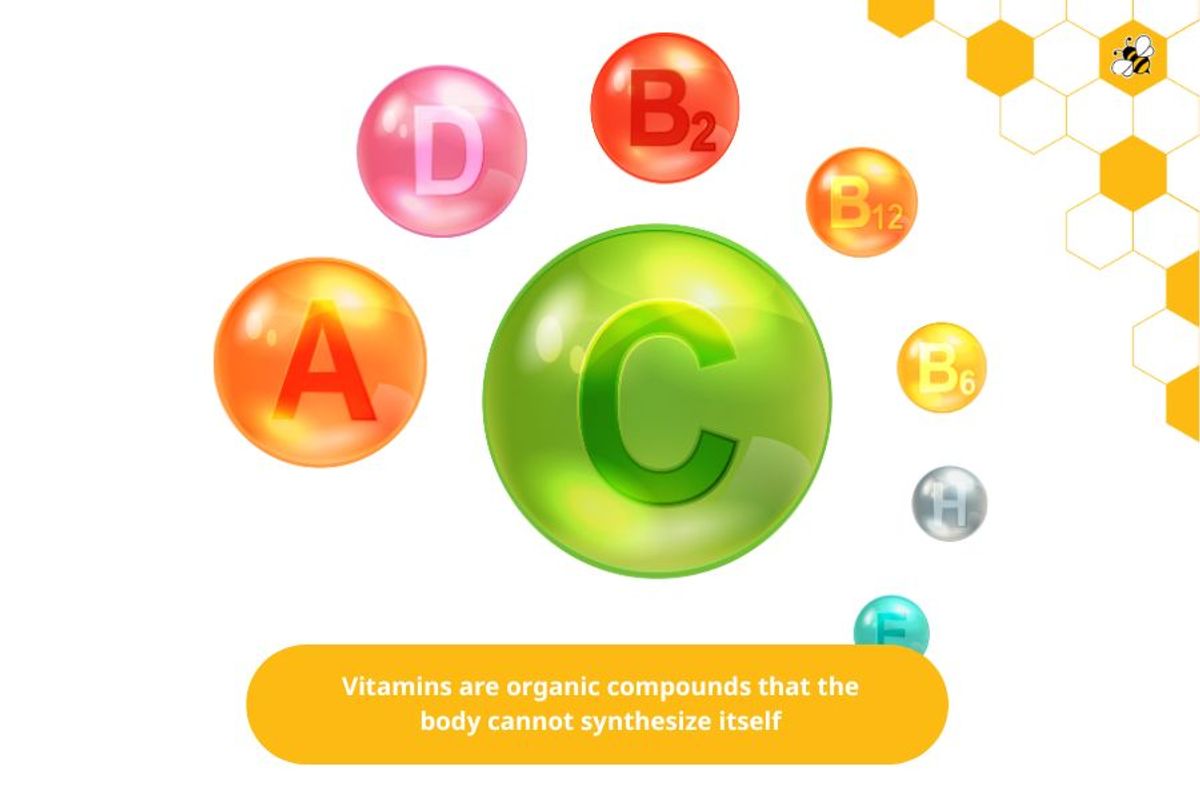
Effects of vitamins on the body
Vitamins play a very important role in the development and maintenance of the body's health. Here are some effects of vitamins:
Vitamin A (Retinol):
Supports the development of skin, eyes, and the immune system.
Helps maintain the health of mucous membranes and skin.
Plays an important role in the visual process.
Vitamin A (Retinol):
Supports the development of skin, eyes, and the immune system.
Helps maintain the health of mucous membranes and skin.
Plays an important role in the visual process.
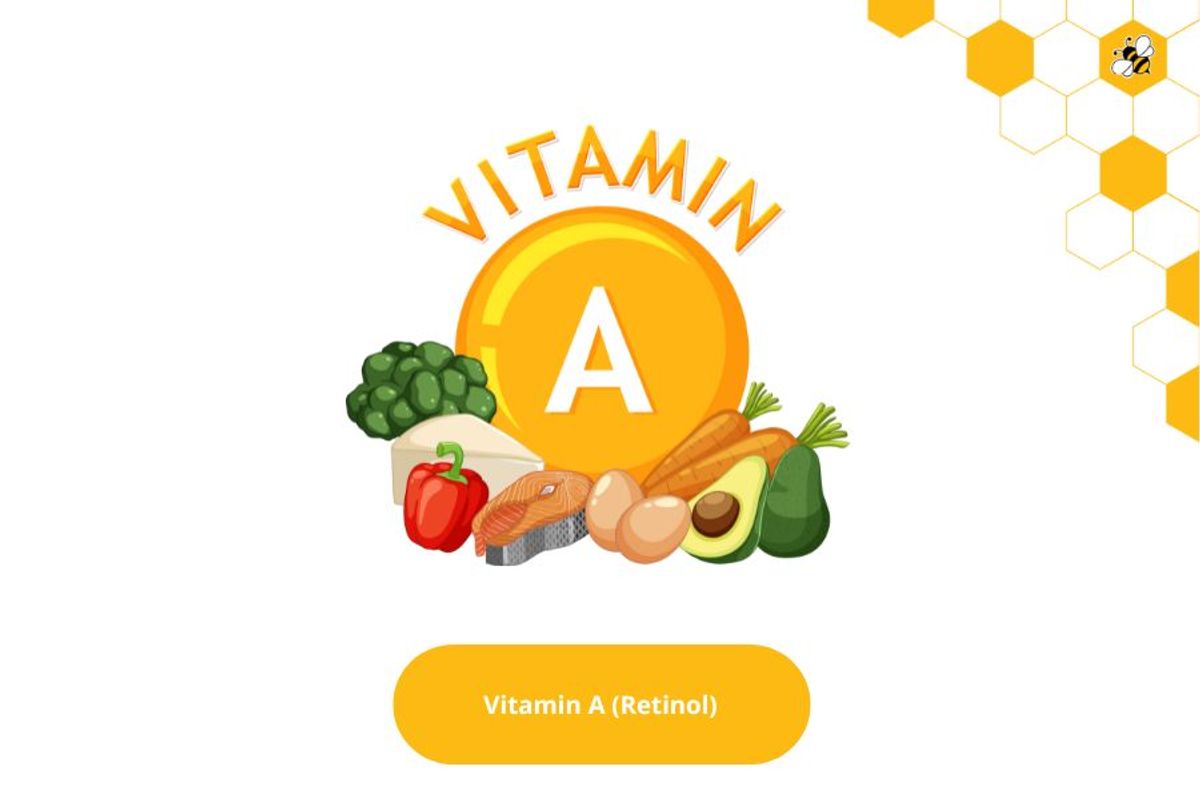
Vitamin C (Ascorbic Acid):
Is an antioxidant that helps protect cells from damage.
Supports the absorption of iron from foods.
Helps maintain healthy skin, bones, and teeth.
Is an antioxidant that helps protect cells from damage.
Supports the absorption of iron from foods.
Helps maintain healthy skin, bones, and teeth.
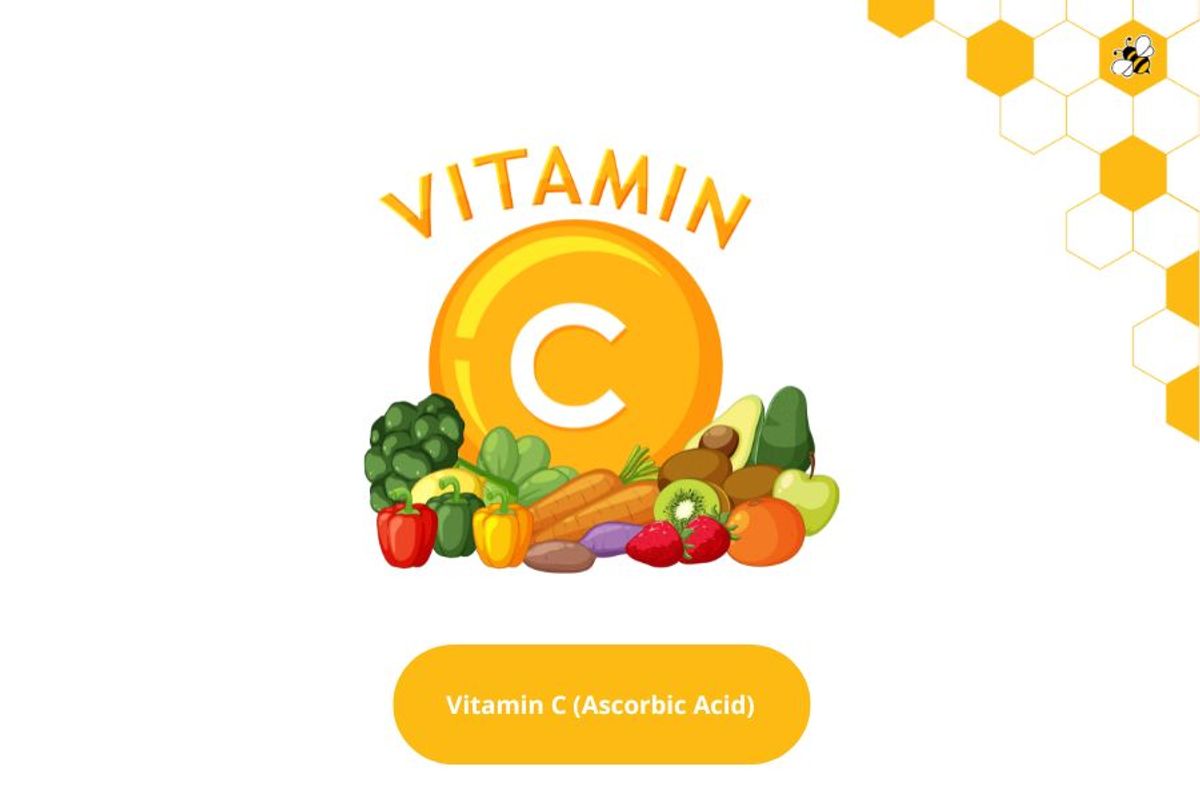
Vitamin D (Cholecalciferol):
Helps the body absorb calcium and phosphorus from food.
Maintains calcium balance in the blood and bones.
Supports immune system health.
Helps the body absorb calcium and phosphorus from food.
Maintains calcium balance in the blood and bones.
Supports immune system health.
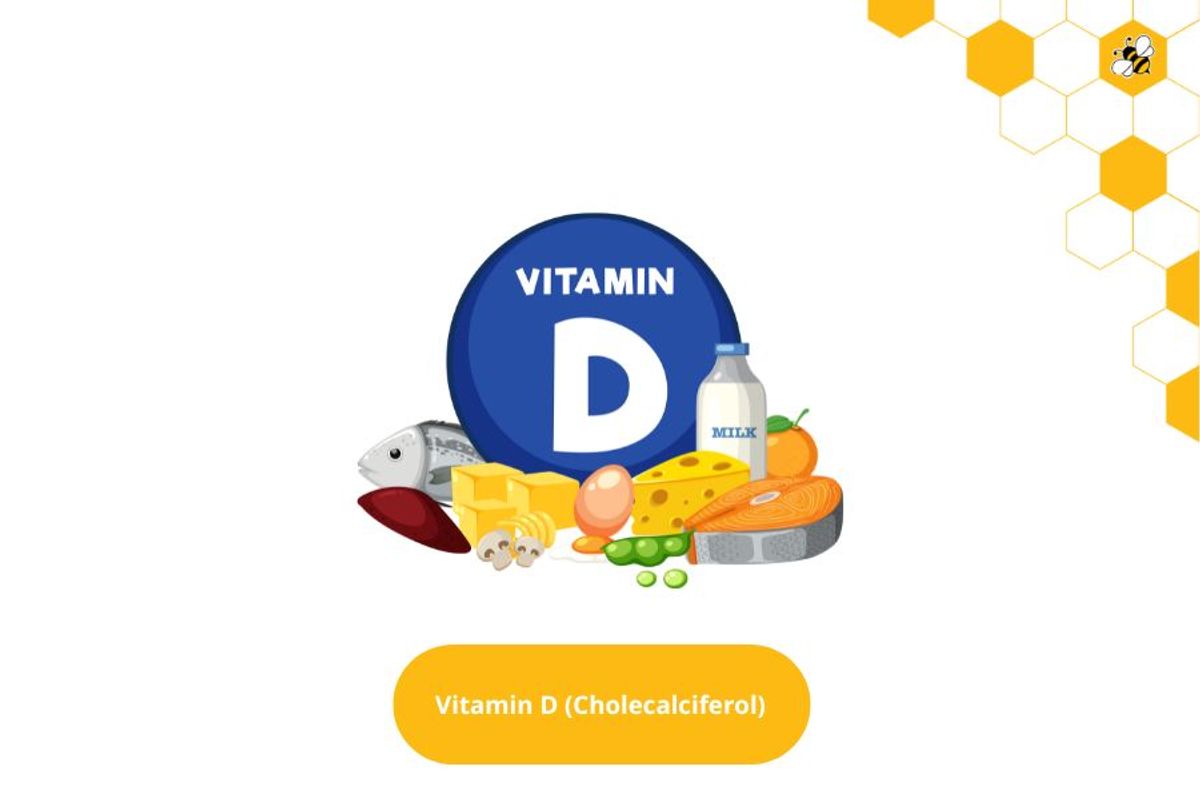
Vitamin E (Tocopherol): Cashews are a good source of vitamin E.
It is an antioxidant that protects cells from damage.
It helps maintain healthy skin and mucous membranes.
It is an antioxidant that protects cells from damage.
It helps maintain healthy skin and mucous membranes.

Vitamin K:
Plays an important role in the entire blood clotting process.
Supports bone development.
Plays an important role in the entire blood clotting process.
Supports bone development.
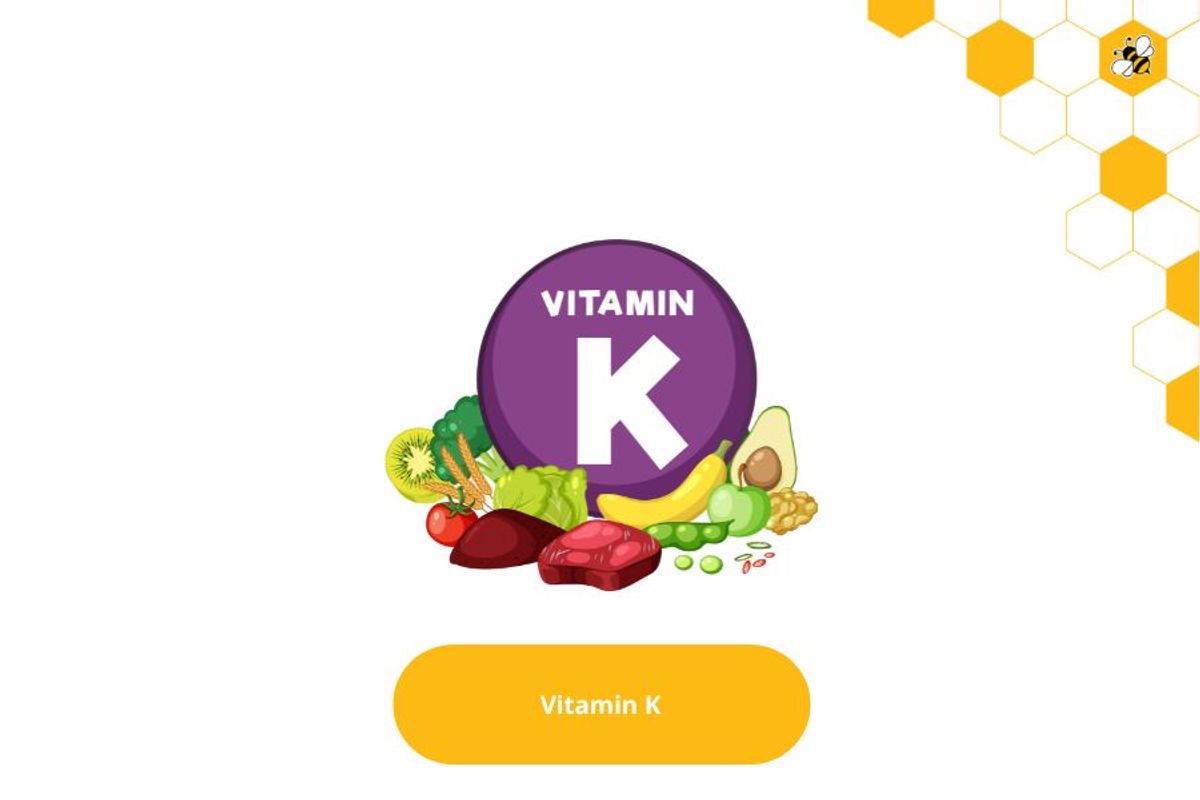
B vitamins (B1, B2, B3, B5, B6, B7, B9, B12):
Involved in the process of converting energy from food.
Supports the development of cells and blood cells.
Plays a major role in maintaining the health of nails, hair, and skin.
Involved in the process of converting energy from food.
Supports the development of cells and blood cells.
Plays a major role in maintaining the health of nails, hair, and skin.

Remember that maintaining a balance of vitamins in the body is important for good health. Eat a variety of foods to provide enough vitamins for the body!
How to eat cashews with your diet to supplement the right amount of vitamins
Cashews are a good source of healthy food, especially because they are rich in vitamins and minerals. To supplement the right amount of vitamins, you can refer to the following information:
Vitamin E: Cashews contain vitamin E, an important free radical scavenger. Vitamin E helps protect cells from damage and maintains the health of the skin and mucous membranes. A serving of cashews (about 28 grams) provides about 0.9 mg of vitamin E.
Vitamin K: Vitamin K in cashews plays an important role in blood clotting. It helps maintain the balance of calcium in the blood and bones. A serving of cashews provides about 34.1 mg of vitamin K.
Vitamin B6: Vitamin B6 helps convert food into energy and maintains the health of cells and blood cells. A serving of cashews provides about 0.417 mg of vitamin B6.
Minerals: Cashews are also rich in minerals such as calcium, sodium, potassium, magnesium, and folate. They play an important role in maintaining the functions of the body. A serving of cashews provides about 28 mg of calcium, 12 mg of sodium, 660 mg of potassium, 292 mg of magnesium, and 25 mcg of folate.
To supplement the right amount of vitamins, you can add cashews to your daily diet. A small handful of cashews (about 28 grams) provides a significant amount of vitamins and minerals, helping to maintain health and support the functions of the body.
Vitamin E: Cashews contain vitamin E, an important free radical scavenger. Vitamin E helps protect cells from damage and maintains the health of the skin and mucous membranes. A serving of cashews (about 28 grams) provides about 0.9 mg of vitamin E.
Vitamin K: Vitamin K in cashews plays an important role in blood clotting. It helps maintain the balance of calcium in the blood and bones. A serving of cashews provides about 34.1 mg of vitamin K.
Vitamin B6: Vitamin B6 helps convert food into energy and maintains the health of cells and blood cells. A serving of cashews provides about 0.417 mg of vitamin B6.
Minerals: Cashews are also rich in minerals such as calcium, sodium, potassium, magnesium, and folate. They play an important role in maintaining the functions of the body. A serving of cashews provides about 28 mg of calcium, 12 mg of sodium, 660 mg of potassium, 292 mg of magnesium, and 25 mcg of folate.
To supplement the right amount of vitamins, you can add cashews to your daily diet. A small handful of cashews (about 28 grams) provides a significant amount of vitamins and minerals, helping to maintain health and support the functions of the body.

Summary
Vitamins found in cashews are an incredibly important part of our daily diet. They provide a wide range of health benefits, from protecting our cells from damage to supporting immune function and maintaining healthy bones and joints. Include cashews in your diet regularly to reap the benefits!